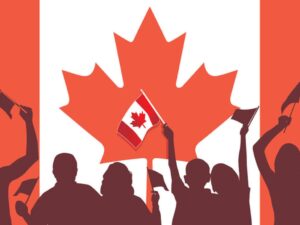Refugee Application in Toronto

Refugee Application in Toronto
A refugee application in Canada allows individuals who have fled their home countries due to fear of persecution, violence, or war to seek protection and asylum. Toronto, as one of the largest and most diverse cities in Canada, serves as a key destination for refugees. The city’s commitment to providing refuge and the numerous support services available make it an important hub for those seeking safety. This report will provide a comprehensive overview of the refugee application process in Toronto, including the eligibility requirements, the steps involved, and the challenges applicants may face during the process.
1. Introduction to Refugee Applications in Canada
Canada has a long history of welcoming refugees, particularly those who are fleeing situations of conflict, political instability, or persecution. Refugees are individuals who are unable to return to their home countries due to a well-founded fear of persecution based on race, religion, nationality, membership in a particular social group, or political opinion.
The refugee protection process in Canada involves several steps, including determining whether an individual qualifies as a refugee, applying for asylum, and undergoing an assessment by the Canadian government. Toronto plays a central role in this process, as it is home to numerous refugee resettlement agencies, legal services, and community organizations dedicated to supporting refugee claimants. This report will explore the refugee application process specifically for those applying in Toronto.
2. Refugee Status and Eligibility: Refugee Application in Toronto
Refugees are individuals who are forced to flee their country of origin due to fear of persecution. There are two primary categories under which refugees can apply for protection in Canada: refugee claimants and resettled refugees.
2.1. Refugee Claimants: Refugee Application in Toronto
A refugee claimant is an individual who arrives in Canada and applies for protection from the Canadian government based on their fear of returning to their home country. Refugee claimants may arrive in Canada through various routes, such as by air, land, or sea, and can seek asylum at a port of entry or from within the country.
Claimants must meet the definition of a refugee under the 1951 Refugee Convention and Canadian law. This includes individuals who face persecution due to:
- Race: Persecution based on ethnic background or nationality.
- Religion: Persecution due to religious beliefs or practices.
- Nationality: Persecution based on nationality or citizenship status.
- Membership in a particular social group: For example, individuals targeted for their sexual orientation, gender identity, or membership in a specific social group.
- Political opinion: Persecution based on political beliefs or affiliations.
Refugee claimants must demonstrate that their fear of persecution is well-founded and not merely speculative. To qualify for refugee status, claimants must also prove that they are unwilling or unable to seek protection from their home government.
2.2. Resettled Refugees: Refugee Application in Toronto
Resettled refugees are individuals who are selected by the Canadian government or by private sponsors from abroad. They are typically referred by the United Nations High Commissioner for Refugees (UNHCR) or other organizations, such as Canadian embassies or resettlement agencies. Unlike refugee claimants, resettled refugees are not required to be physically present in Canada to apply for protection.
Canada’s Resettlement Assistance Program (RAP) and private sponsorship programs play key roles in the resettlement process. Resettled refugees receive support from the government or private sponsors upon arrival, including financial assistance and help with finding housing, employment, and accessing healthcare services.
3. The Refugee Application Process in Canada
The refugee application process in Canada involves several key stages. Whether the application is submitted as a refugee claimant or through resettlement, each stage is critical in determining whether the individual will be granted asylum in Canada.
3.1. Claiming Refugee Status: Refugee Application in Toronto
For individuals applying from within Canada, the process begins when a refugee claimant submits their application for protection. Claimants can make their refugee claim either at a port of entry (e.g., an airport, land border, or seaport) or inside Canada at a local immigration office.
Upon making the claim, the claimant will be issued a temporary resident permit while their application is processed. The claimant must also undergo a biometric screening, which includes fingerprinting and a photo.
3.2. Refugee Hearing and Assessment: Refugee Application in Toronto
Once the application is submitted, it is referred to the Refugee Protection Division (RPD) of the Immigration and Refugee Board of Canada (IRB). This is the body responsible for hearing refugee claims and making decisions on whether the claimant qualifies for protection.
The claimant will be scheduled for a refugee hearing, where they will have the opportunity to present their case and provide evidence supporting their claim. It is important to note that refugee claimants are expected to provide details of their experiences and why they fear returning to their home country. This may include submitting documents such as personal statements, medical reports, and witness testimony.
The IRB will assess the evidence presented during the hearing, including country condition reports and other relevant information, and decide whether the claimant meets the criteria for refugee status. If the claim is approved, the claimant will be granted refugee status in Canada and will be eligible for permanent residency.

3.3. Refugee Appeal Process: Refugee Application in Toronto
If a refugee claimant’s application is refused by the RPD, they have the option to appeal the decision to the Refugee Appeal Division (RAD) of the IRB. The RAD will review the case and may overturn the decision if new evidence is presented or if there were errors in the initial hearing.
If the RAD also denies the claim, the claimant may seek judicial review of the decision in Federal Court. A judicial review is not an appeal of the merits of the claim but rather a legal review of the process to ensure fairness.
3.4. Applying for Permanent Residency
If the refugee claim is successful, the claimant will be granted refugee status and can apply for permanent residency in Canada. The process to obtain permanent residency includes completing the necessary paperwork and submitting additional documents such as proof of identity, family information, and medical examination results.
Once permanent residency is granted, refugees can enjoy the same rights as other permanent residents of Canada, including access to healthcare, education, and the ability to work.
4. Refugee Support Services in Toronto
Toronto is one of the most diverse cities in Canada and serves as a major destination for refugees. As such, there are numerous resources available to help refugees navigate the application process and settle in Canada. These support services include:
4.1. Legal Assistance: Refugee Application in Toronto
Navigating the refugee application process can be complex, and legal assistance is often necessary. Many refugees in Toronto rely on legal aid organizations and immigration lawyers to help them with their claims. The Refugee Law Office (RLO), for example, provides free legal representation for eligible refugee claimants.
Additionally, various community-based organizations offer support in preparing documents, providing translation services, and offering emotional support. These organizations play a crucial role in helping refugees understand the process and ensuring that they present strong cases.
4.2. Settlement Services: Refugee Application in Toronto
Upon arrival in Toronto, refugees are often connected to various settlement agencies that assist with integration. These agencies offer services such as housing assistance, employment support, language training, and community orientation. Organizations like The YMCA of Greater Toronto and The Canadian Council for Refugees are vital in providing these services.
4.3. Healthcare and Social Services
Refugees in Toronto have access to healthcare through the Interim Federal Health Program (IFHP), which provides temporary health insurance until refugees become eligible for provincial healthcare coverage. Social services, including assistance with accessing food, clothing, and mental health support, are also provided by local organizations.
5. Common Challenges Faced by Refugee Applicants
The refugee application process in Toronto, while supported by many resources, also comes with significant challenges. Some of the most common challenges faced by refugee claimants include:
5.1. Language Barriers
Many refugee applicants in Toronto come from countries where English or French is not widely spoken. Language barriers can pose significant challenges in preparing and presenting their claims. Refugees may struggle with paperwork, communicating with legal representatives, and understanding the intricacies of the application process.
5.2. Psychological and Emotional Trauma
Refugees often flee traumatic experiences, including violence, war, or persecution. As a result, many refugee claimants face significant emotional and psychological challenges. Mental health support services are available, but the process of recounting traumatic experiences during the application and hearing process can be emotionally taxing.

5.3. Delays and Uncertainty: Refugee Application in Toronto
The refugee application process can be long, with claimants often facing months or even years of waiting for decisions. The uncertainty of the outcome can be difficult for refugees who are already facing challenging circumstances. Delays in the processing of refugee claims can add to the anxiety and stress that applicants experience.
5.4. Legal and Administrative Challenges
Navigating the legal and bureaucratic aspects of the refugee process can be overwhelming, especially for those who are unfamiliar with Canadian laws. Applicants must meet specific deadlines, submit complex documentation, and present evidence in a compelling way to improve their chances of success. For some, securing legal representation can be financially difficult.
6. Conclusion: Refugee Application in Toronto
The refugee application process in Toronto is a critical path for individuals seeking protection and safety in Canada. Despite the challenges, Toronto offers a wealth of resources and support for refugees, making it an ideal location for those who need help starting a new life. The process requires patience, resilience, and a clear understanding of the legal steps involved. However, with the right support and guidance, refugees can successfully navigate the system and secure a better future for themselves and their families. Through ongoing legal assistance, settlement programs, and community integration, Toronto continues to be a beacon of hope for refugees from around the world.
In case, if you need help with Refugee Application in Toronto or other cities of Canada, please fill in application below or contact us directly.

